Webtoons are quickly becoming sought-after as source material for movies, games and other forms of entertainment. With the rise of global content platforms like Netflix, the value of webtoons as “super intellectual properties” is set to appreciate even further.
The value of webtoons as a basis for movies, TV dramas, games and animations was slow to materialize; until the mid-2000s, webtoon-based cross-media productions were limited to certain genres. A handful of Kang Full’s works, such as “Love Story,” spawned plays, and Kang Do-ha’s “The Great Catsby” became a musical.
Profits from crossovers were also negligible. And then “Moss,” a 2010 mystery thriller directed by Kang Woo-suk, upended the malaise. Based on the webtoon of the same title by Yoon Tae-ho, “Moss” became the first webtoon-based movie to rack up ticket sales. It passed the break-even point, drawing an audience of around 3.35 million, and won numerous awards in the festival circuit, including some for best director, best actor and best cinematography. Cross-media adaptations of webtoons became entrenched thereafter.
Cho Seok’s “The Sound of Your Heart” is probably the most notable webtoon to have inspired a range of adaptations. With a 14-yearlong storyline that concluded in 2020, it was the longest-running serial on Naver Webtoon. Episodes spotlighted the daily events of characters primarily derived from people around Cho. In 2016, the webtoon turned into a five-part sitcom, which was streamed online and then later televised. A 20-part follow-up, “The Sound of Your Heart – Reboot,” appeared in 2018 with a new cast and was released on Netflix. A mobile game featuring the webtoon’s original characters was also launched in 2016, and that same year, a 26-episode animated series aired on several children’s channels.
At the National Library of Korea, “The Age of Webtoon Platforms: The Meteoric Rise of Webtoon IP,” an interactive exhibition, counted that 19 movies, 36 television dramas, 19 games, 17 animated features, 65 plays and 14 musicals had been adapted from webtoons by the mid-2010s.
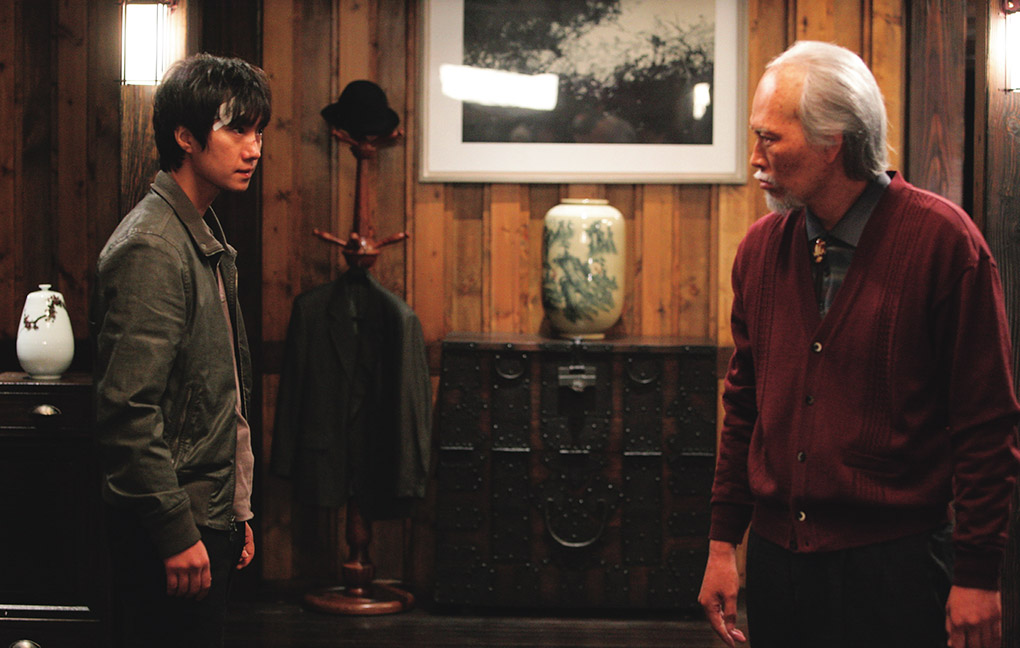
A scene from the movie “Moss,” a 2010 mystery thriller directed by Kang Woo-suk based on the webtoon of the same title by Yoon Tae-ho. The protagonist travels to a rural village where his father lived and uncovers the residents’ mysterious secrets. © CJ ENM
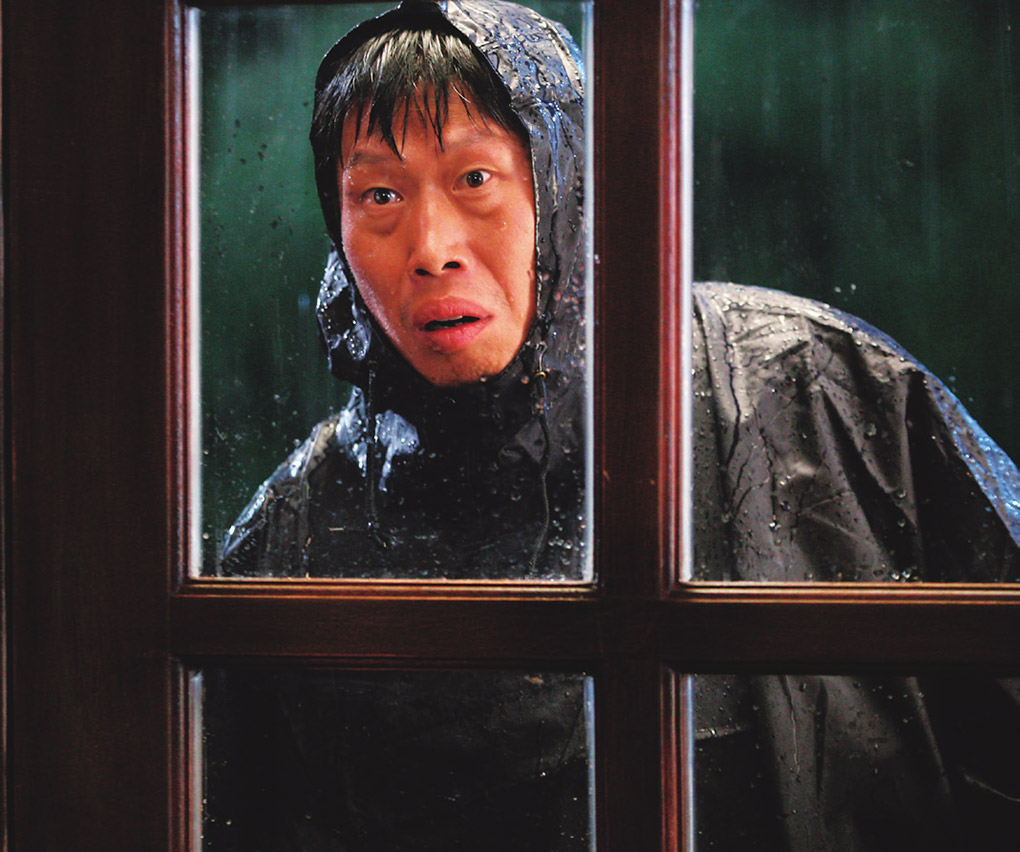
© CJ ENM
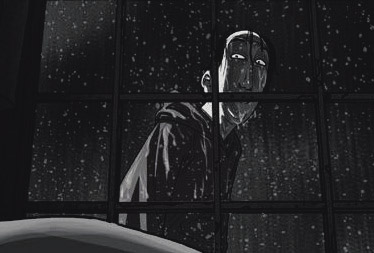
© Yoon Tae-ho, SUPERCOMIX STUDIO Corp.
The movie and webtoon versions of a scene from “Moss,” in which the village head’s henchman tries to sneak into the house of the protagonist.
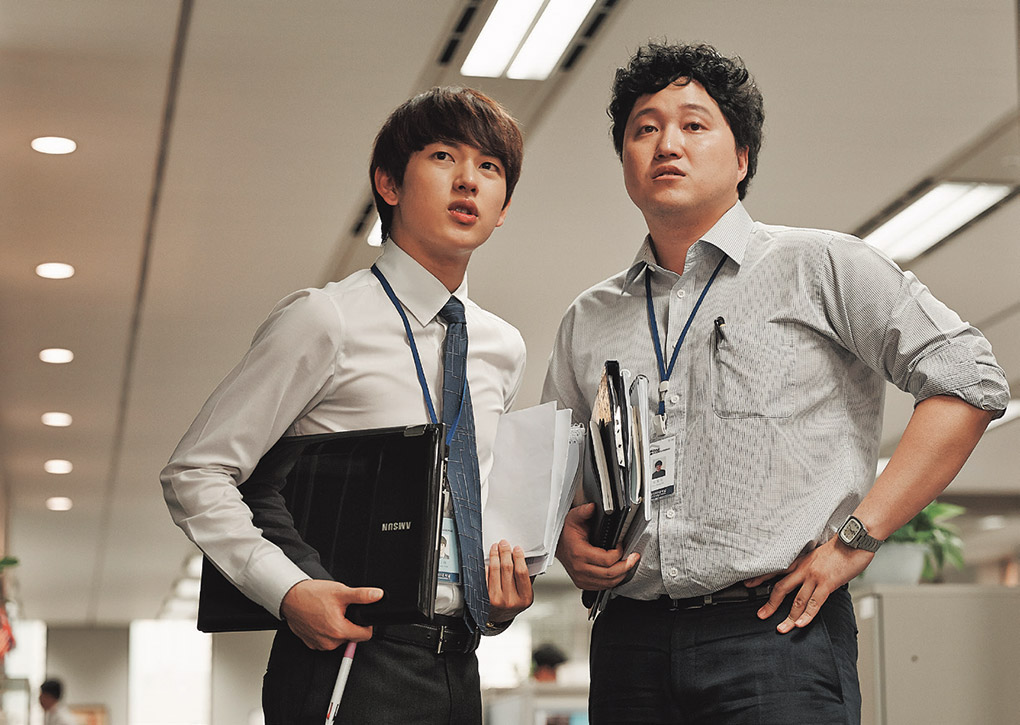
© STUDIO DRAGON
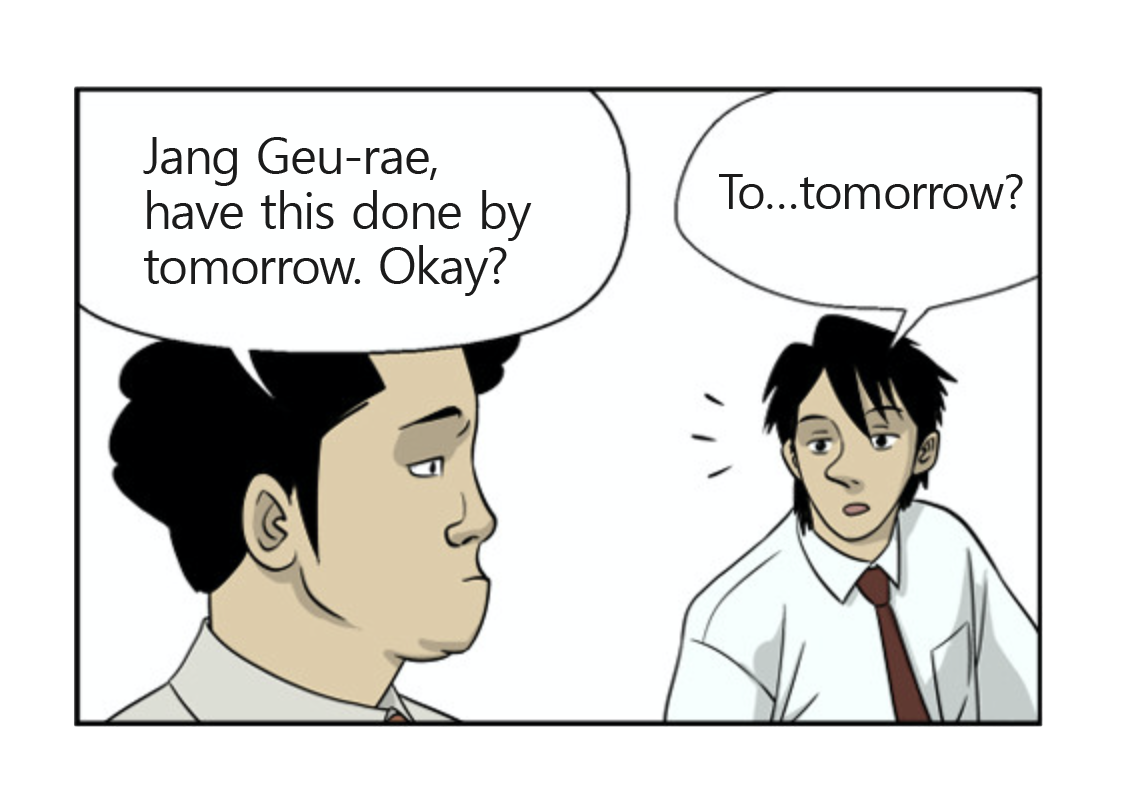
© Yoon Tae-ho, SUPERCOMIX STUDIO Corp.
“Misaeng: Incomplete Life,” serialized on Daum Webtoon, was made into a 20-episode TV series in 2014 and became a big hit. Young protagonist Jang Geu-rae struggles to adjust to office life in a large trading company.
Turning Point
The premiere of the first season of Netflix original series “Kingdom” in January 2019 was an inflection point in the cross-media adaptations of webtoons, in terms of both production scale and quality. The zombie horror drama was based on “The Kingdom of the Gods,” a Japanese manga series produced by webtoon company YLAB. In order to better deliver both the distinctive elements of the original story and the fine art of adaptation, “Kingdom” was made into a webtoon and released on Naver a week before Netflix began streaming its version.
Television dramatist Kim Eun-hee wrote both the story for the comics and the TV series, firmly implanting the original plot and perspectives into the series. Released in 190 countries, “Kingdom” has ranked as high as ninth among the most popular television shows on IMDb, an online database of information on films and television shows. Netflix aired a second season in 2020, and the New York Times subsequently listed the series among its “10 Best International TV Shows.” A third season is in the pipeline.
“Kingdom” ignited an explosive increase in cross-media adaptations of webtoons. It also marked the expansion of distribution channels from local television stations and OTT (overthe-top) platforms to global platforms like Netflix and China’s Tencent.
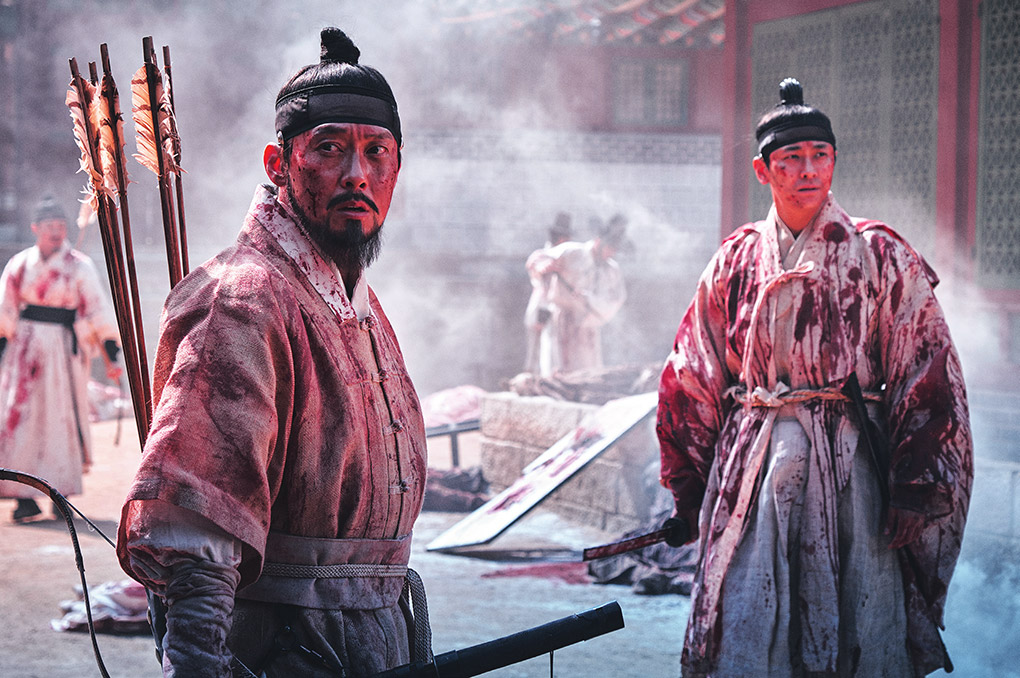
Netflix original series “Kingdom” is a faithful adaptation of the webtoon, “The Kingdom of the Gods.” The storyline is about a crown prince who battles zombies and accusations of being a traitor. © Netflix Original Series
The premiere of the first season of Netflix original series “Kingdom” in January 2019 was an inflection point in the cross-media adaptations of webtoons, in terms of both production scale and quality.
Regeneration
Transmedia storytelling s and develops a variety of content from a single source story to expand and deepen the story’s universe across different media, platforms and genres. It largely involves two approaches: crossing over into other formats after the original form has proved to be an exceptional success, or developing content for crossovers at the outset.
Yoon Tae-ho’s “Misaeng: Incomplete Life” (2012-2013) is an example of the former strategy. Its massive popularity when serialized on internet portal Daum led to a production in 2013 of a mobile short film titled “IncompleteLife: Prequel,” which probed the past of the main characters that went unexplored in the original story. In 2014, cable channel tvN aired a 20-episode series titled “Misaeng: Incomplete Life.” Actor Yim Si-wan reprised his lead role from the film version. While the series was airing, Yoon released five special webtoon episodes looking back at the past life of one of the main characters, Mr. Oh.
The webtoon’s sequel, “Misaeng 2,” was serialized from 2015 to 2018 on Daum and KakaoPage. While the original work detailed the struggles of contract employees to survive the fierce competition in a large corporation, the sequel put the lens on a small business pitted against a conglomerate. The webtoon, mobile film and television series have distinct storylines, but are all part of the “Misaeng” universe.
Meanwhile, “Itaewon Class” (2016-2018), by Kwang jin, is a prime example of global cross-media adaptation of a webtoon. In 2017, while it was being serialized in Korea, a Japanese adaptation was released under the title “Roppongi Class” on the digital comics platform Piccoma, operated by Kakao Japan, the Japanese subsidiary of Kakao Corp.
In early 2020, the original webtoon was made into a television series that aired on the Korean cable television network JTBC, drawing interest from Netflix. “Itaewon Class” became the second most-watched title on Netflix Japan and reawakened awareness of “Roppongi Class.” Sales of the Japanese webtoon subsequently soared 454 percent from a year earlier.
Bridging Platforms
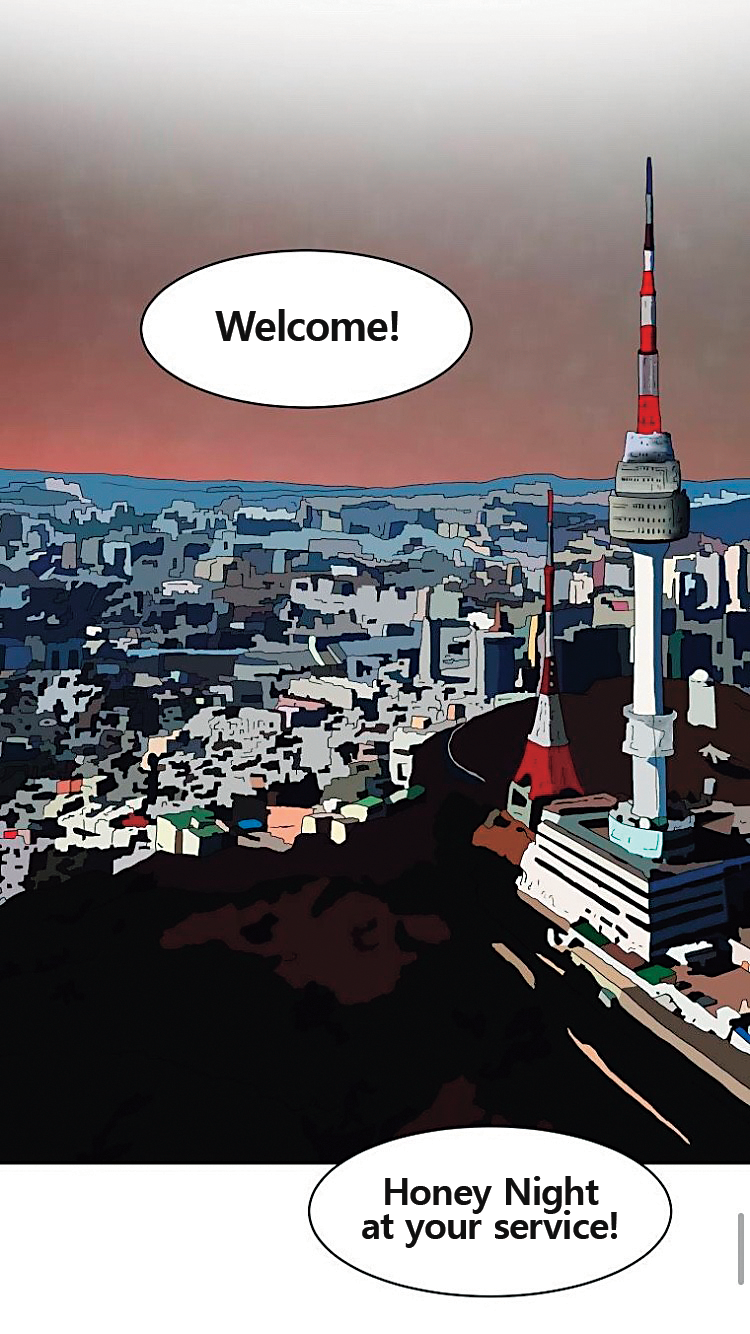
© Kwang jin / Courtesy of Daum Webtoon
“Space Sweepers,” a space opera film directed by Jo Sung-hee released on Netflix in February 2021, tells the story of “Seungri-ho” (Victory), a ship that collects space debris, and the dramatic events that unfold for its crew after they discover a humanoid child robot named Dorothy, known as a weapon of mass destruction. The transmedia storytelling strategy was adopted from its planning stage, with Bidangil [Silk Road] Pictures producing the movie and Kakao Entertainment Corp. producing a webtoon based on the same theme. Accordingly, 19chapters of the webtoon, serialized between May and September 2020, preceded the Netflix rollout.
Ensuing chapters were released in Korea after the movie’s release, and the webtoon was concurrently serialized in Japan, Indonesia, North America and France. Without the time constraints of a feature film, the webtoon could more freely develop the characters.
The strategy deployed to deliver the overlapping story of “Space Sweepers” to moviegoers and webtoon readers, with each version optimized to suit the distinct characteristics of its respective format, can be seen as an evolved form of transmedia storytelling. The movie and webtoon each play a unique role in building the story world surrounding the spaceship and its crew, thus creating a richer entertainment experience for both audiences. This appears to be an effective move to diversify and maximize the profit structure through a virtuous cycle whereby movie viewers read the webtoon and webtoon readers watch movie.
Companies at the forefront of the Korean webtoon industry, including Naver Webtoon, Kakao Entertainment Corp. and YLAB, are cultivating “Super IP,” a term introduced by Chinese technology conglomerate Tencent. This refers to intellectual property such as games, webtoons and movies that can be continuously reframed for other entertainment formats to increase profits.
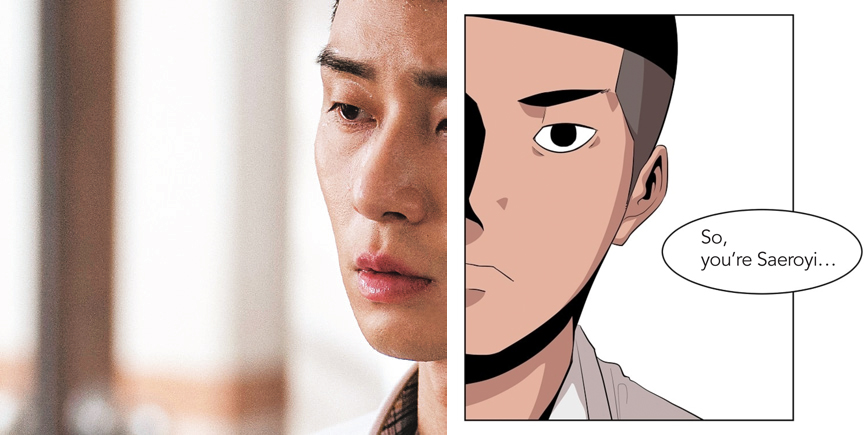
© JTBC
. “Itaewon Class” recorded the highest viewer ratings for a TV adaptation of a webtoon. Set in Itaewon, a multicultural district in Seoul, it tells the story of a young startup owner’s fight against a major food company. The webtoon and TV series scenes show protagonist Park Saeroyi and Jang Dae-hee, CEO of the food company. The webtoon’s author, Kwang jin, also wrote the script for the TV series.

Courtesy of Netflix
“Space Sweepers,” directed by Jo Sung-hee, is about a spaceship, “Seungri-ho” (Victory), that collects space debris, and the dramatic events that unfold after its crew finds a humanoid child robot aboard. It is an example of transmedia storytelling, with Bidangil Pictures producing the movie and Kakao Entertainment Corp. producing a webtoon at the same time.
Super IP
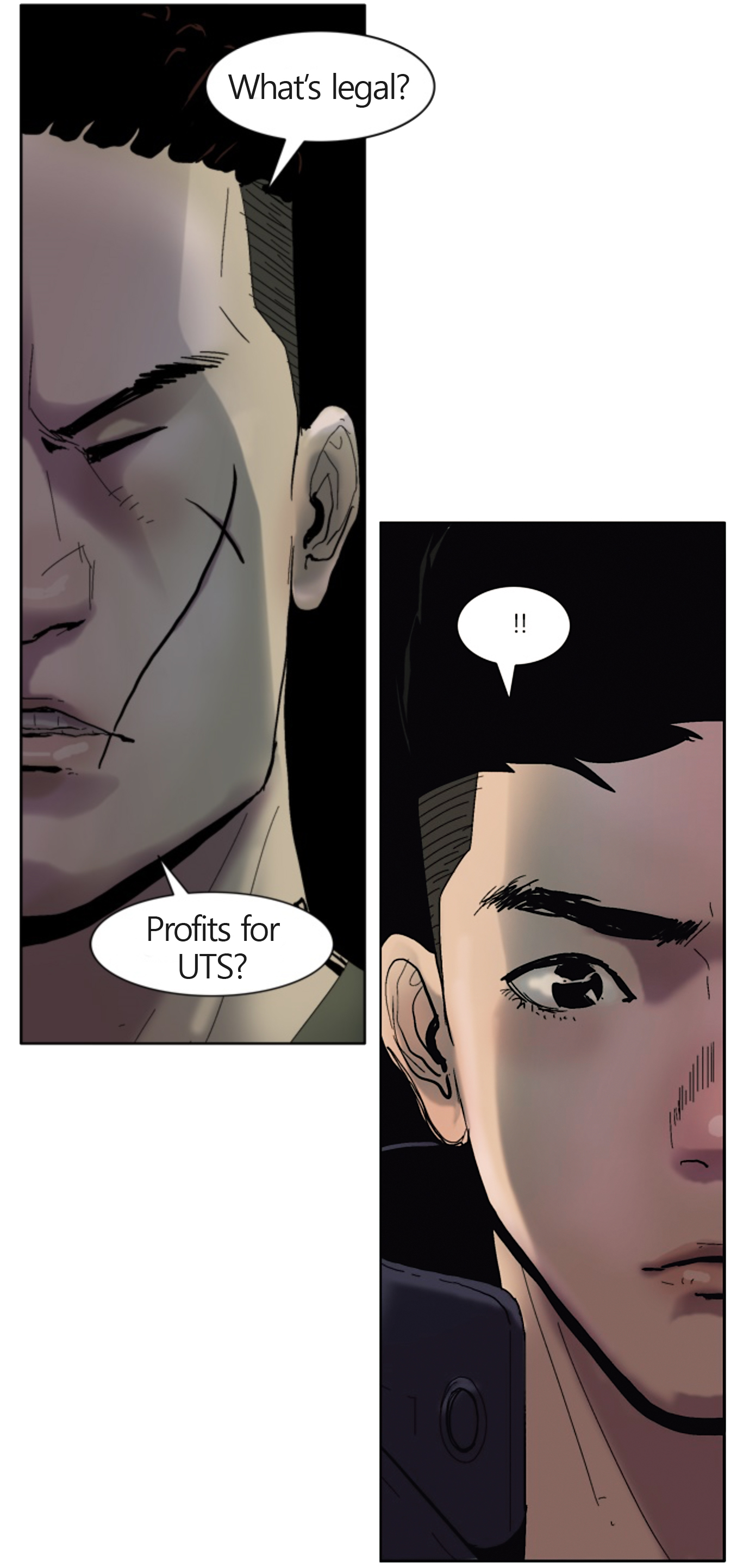
© Hongjacga, Kakao Entertainment Corp.
For example, YLAB has a page on Naver Webtoon dedicated to “Super ,” an IP in which characters from the company’s various webtoons assemble to counter the forces of evil and save the Earth. The premise mirrors Hollywood’s Marvel superheroes, who battle evil separately and also as a team. YLAB’s first crossover from the webtoon universe, “Terror vs Revival,” unveiled in January 2021, pits “Terror Man” against “Reawaken Man.”
In this way, cross-media and transmedia storytelling is expected to evolve toward broader “story universes,” where plots and characters rooted in a shared world are developed and expanded continuously across genres, platforms and media.
“Secretly, Greatly”
Original story by Hun
Platform: Daum Webtoon
Serialized: 2010-2011
Movie release: 2013

© HUN, SUPERCOMIX STUDIO Corp.

© MICHIGAN VENTURE CAPITAL AND MCMC
“Secretly, Greatly,” directed by Jang Cheol-soo, is about an elite North Korean spy who is sent to the South to await orders from the North while disguised as a village idiot. It remains one of Korea’s highest-grossing webtoon-based movies, having attracted around seven million viewers to the domestic box office. Although the film was unable to cram in everything from the long-run-ning webtoon, the cast was superb in bringing the characters to life and the dialogue was memorable. Kim Soo-hyun clinched two best new actor awards for his lead role in the movie.
>Following the movie’s success, two more webtoons were published: “Secretly, Greatly: Slumber” (2013), revolving around stories that were not included in the original version, and a prequel, “Secretly, Greatly 2” (2013-2014). The webtoon was also made into a musical titled “Secretly, Greatly – The Last,” which was staged in 2016.
“Tower of God”
Original story by SIU
Platform: Naver Webtoon
Serialized: 2010-2020
Movie release: 2020
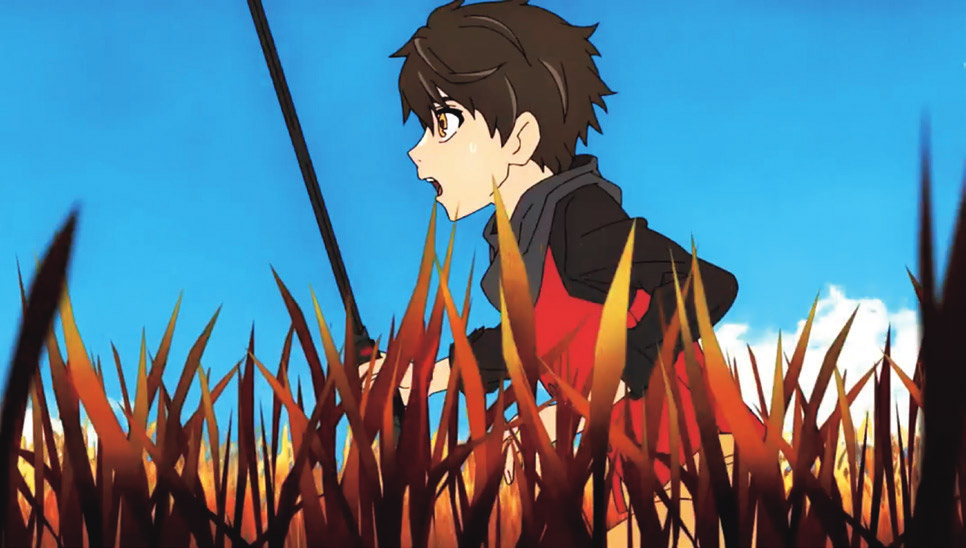
© NAVER WEBTOON
“Tower of God” centers on a boy named Bam who lives beneath a tower with only his close friend Rachel for company. After she enters the tower, Bam is determined to find her and is tested on each floor as he makes his way up to the top. The animated TV adaptation of the long-running webtoon serial was an international effort involving Korea’s Naver Webtoon, U.S. anime content company Crunchyroll and Japanese animation studio Telecom Animation Film. It was directed by Takashi Sano, a former animator.
The series premiered on Crunchyroll in April 2020 to high viewership. It began airing in Japan on Tokyo MX in the same month and was released on Netflix Japan in November 2020, consistently ranking among the daily top 10 most-watched titles.
he success of “Tower of God” spurred more anime series adaptations of Naver webtoons in Japan: “The God of High School,” which aired on Tokyo MX and AT-X, and “Noblesse,” which aired on Tokyo MX and BS11, both released in 2020.
“The Uncanny Counter”
Original story by Jang E
Platform: Daum Webtoon
Serialized: Since 2018
Movie release: 2020-2021
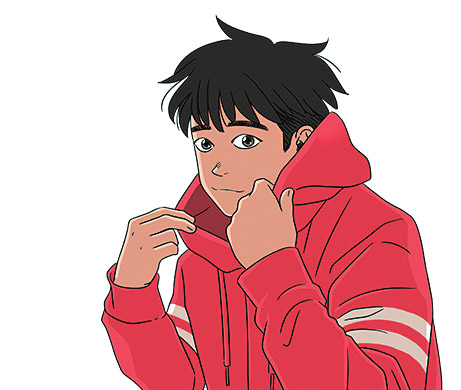
© Jang E / Courtesy of Daum Webtoon
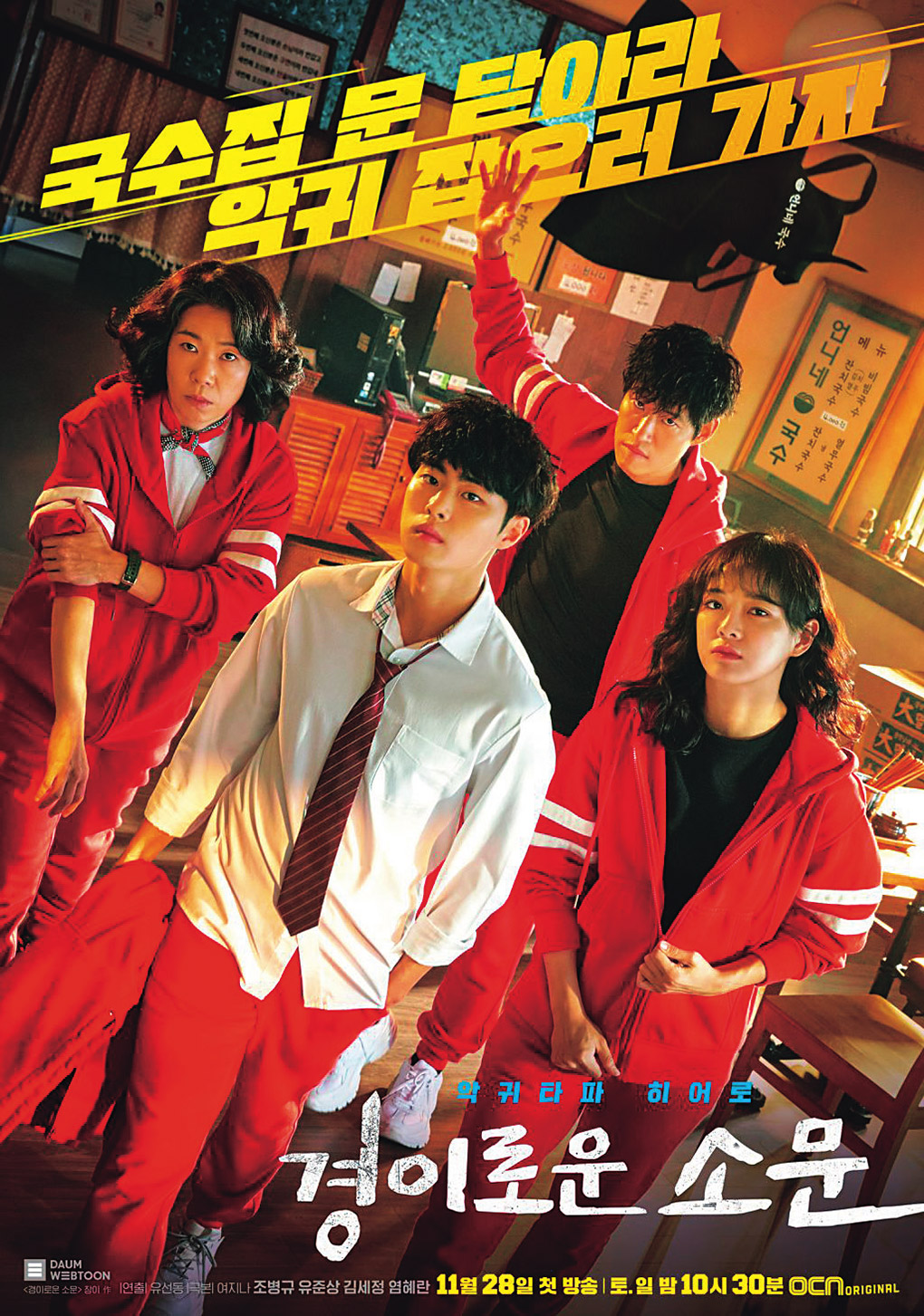
© STUDIO DRAGON
“The Uncanny Counter” is a 16-episode television series that aired from November 2020 to January 2021 on domestic cable channel OCN. It appeared on Netflix soon after. The plot centers on a disabled high school student who is recruited to join the Counters, paranormal hunters who battle evil spirits that escape the afterlife and possess human hosts in search of immortality.
The English title of the TV series was changed from the webtoon’s title, “Amazing Rumor” (a pun on the main character’s name). Other differences between the two versions include the roles of the characters and their relationships, the level of conflict and the unfolding of major events. “The Uncanny Counter” became the first OCN series to record a two-digit viewership rating. Like the webtoon, the distinctive charm and harmony of the Counters proved to have a strong draw. Scenes showing the four demon-hunters decked out in identical red tracksuits as they set out on another mission brought a cheerful verve to the drama.
When not busy hunting down evil spirits or receiving instructions from a celestial panel, the Counters operate a noodle restaurant to avoid the public eye.
“Hero Cantare”
Original story by “Tower of God”/“The God of High School”/“Hardcore Leveling Warrior”
Creators: SIU/Yongje Park/Sehoon Kim
Platform: Naver Webtoon
Serialized: Since 2010/2011/2016
RPG release: 2019
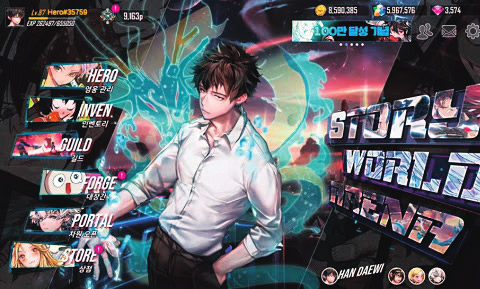
© NGELGAMES
“Hero Cantare” is considered a prime example of a mobile role-playing game (RPG) that incorporates the storylines of webtoons. Launched by NgelGames, it involves characters from three action-oriented Naver webtoons: “Tower of God,” “The God of High School” and “Hardcore Leveling Warrior.”
The characters in the game team up to save the planet Tetra, which is in danger of being destroyed when a gap opens up in space. Just four months after its release in overseas markets, “Hero Cantare” surpassed 10 billion won in sales, and was No. 1 on both Google Play Store’s North American RPG game chart and among RPGs for iOS and Android in Japan.
For the game’s second anniversary update, three “pair heroes” were added; they borrow the powers of other webtoon characters. For example, a “Tower of God” character gains the ability to use the power of a character from “The God of High School,” and in turn, that character is able to deploy the superpowers of a “Hardcore Leveling Warrior” character. This crossover of characters from different webtoons boosts the game’s fun factor.
“Hellbound”
Original story by Yeon Sang-ho and Choi Gyu-seok
Platform: Naver Webtoon
Serialized: 2019-2020
Movie release: Late 2021
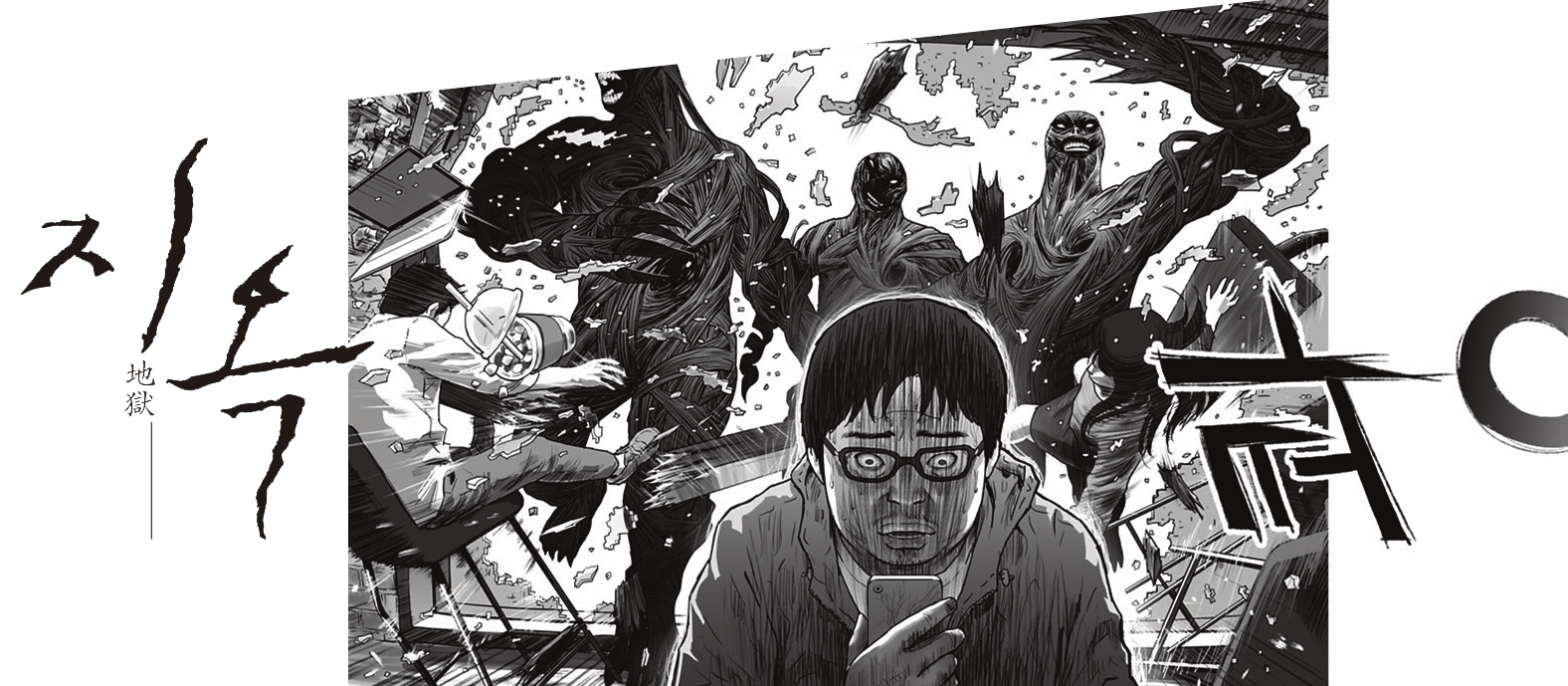
© Yeon Sang-ho, Choi Gyu-seok / Courtesy of NAVER WEBTOON
“The Hell,” serialized on Naver Webtoon, is based on the animated short “The Hell: Two Kinds of Life” (2006) by Yeon Sang-ho, a director who works in both live-action movies and animation. Written by Yeon and illustrated by Choi Gyu-seok, the thriller webtoon explores sin and punishment, justice and judgment as it unravels the truth behind supernatural phenomena.
News of a collaboration between the two men was enough to cause a sensation all on its own. Yeon is known for works that are infused with distinctive commentary, such as the animated films “The Fake” (2013) and “Seoul Station” (2016), and the live-action fea-ture “Train to Busan” (2016), while Choi is recognized for groundbreaking webtoons, most notably “Gimlet” (2013-2017), which details the struggles of contract workers at a large retailer who take action against their unfair dismissal.
“Hellbound,” a Netflix original series adapted from “The Hell,” is scheduled for release later in 2021. With Yeon and Choi writing the script and Yeon directing the series, deeper substance will likely be added to the webtoon’s storyline.